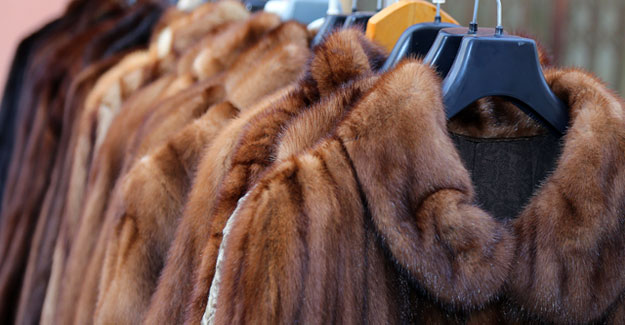
Russia-Ukraine War Could Bring Down The Last Remnants Of Europe’s Fur Industry
Kastoria is the heartland of a centuries-old fur industry in Greece, Europe's last remaining fur manufacturing centre. Animal rights campaigns, growing consumer awareness, and commitments by leading brands to stop using real fur, the growing acceptance of artificial fur, has had the desired impact on the animal fur trade. The European animal fur manufacturing industry has dwindled significantly, with the last remnants in Greece. And the Greek industry could well by on its last leg, as sanctions against Russia has severely impacted demand for fur apparel. For Greece, Russia is the most important market for fur. Greece has banned exports to Russia. The sanctions also ban shops from selling to Russian tourists in Greece, because fur is considered a luxury good. The Greek government is supporting this industry till September, but the writing is on the wall. Kastoria is the heartland of a centuries-old fur industry in Greece, Europe’s last remaining fur manufacturing centre and one of the few EU countries still allowing fur farming despite pressure from animal rights groups at home and abroad. With the demise of Denmark’s huge fur industry during a coronavirus-driven mink cull, animal rights groups hope the cut-off from the Russian market could spell the end of the European fur market, which has already shrunk drastically in response to animal welfare campaigns. And with a growing number of big fashion houses such as Gucci and Prada committing to not using real fur in the future, activists say the sanctions against Russia could help speed up the decline of an industry they call “morally bankrupt.” “Russians have traditionally been big buyers. The war has obviously stopped that, which is extremely good news,” said Mark Glover, a spokesperson for Fur Free Alliance, a coalition of more than 50 animal protection groups around the world. “It’s a matter of time before businesses close, no matter how much help they get from the state.” “The Greek government has made a serious miscalculation in continuing to prop up this industry,” said Jo Swabe, EU public affairs director at animal protection charity Humane Society International. “It’s a dying sector anyway,” she said. Fur garments are among Greece’s top 10 exports, but they have been declining over the years. Exports to Russia amounted to 14 million euros last year, down from 55 million euros in 2017, according to Greek statistics data. The number of mink farms fell to 92 in 2020 from 131 in 2018, according to animal rights group VeGaia.
Textile Excellence
If you wish to Subscribe to Textile Excellence Print Edition, kindly fill in the below form and we shall get back to you with details.












